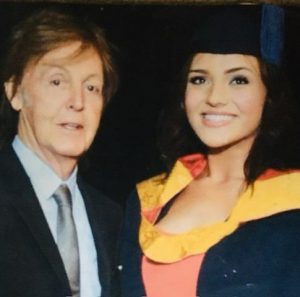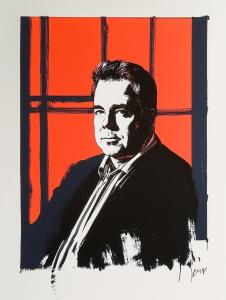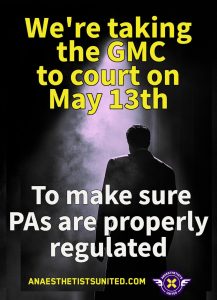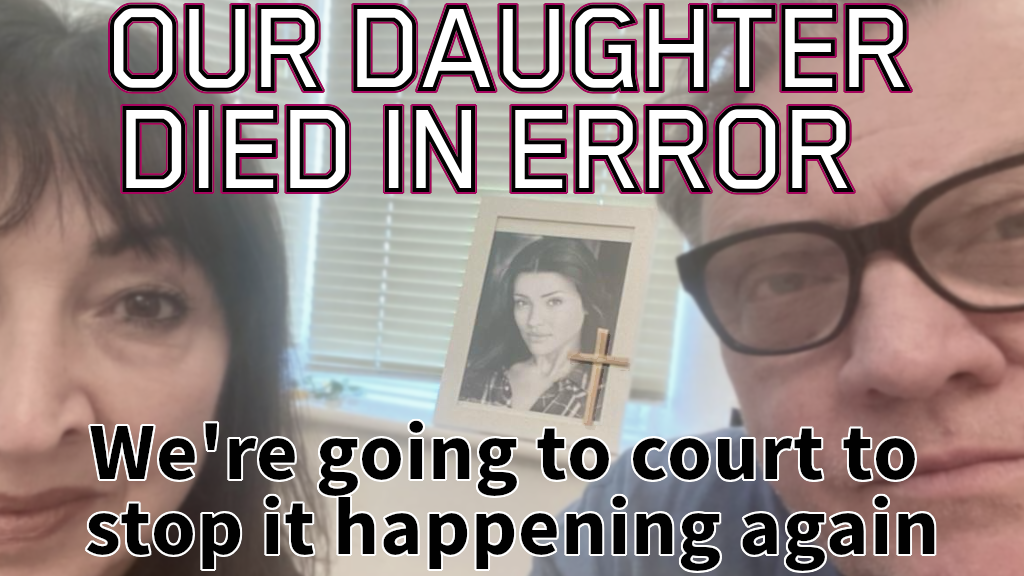To lose a child is so very painful. It is not the right order of this world. However, to lose a child and then discover it was avoidable is the worst pain ever.
Emily was our precious, beloved daughter, a beautiful, kind, talented singer with a wonderful future ahead of her.
She became unwell just after her 30th birthday. She just told us that she’d been coughing all night, but when we arrived in London to see her we were shocked to find her so poorly that she could barely walk without assistance. She felt sick the whole time and just wanted to lay down.
She told us she had seen the doctor (for a second time) earlier that morning, who had reassured her that it was nothing serious – just anxiety – and she had been prescribed some pink tablets to calm her down.
Only it wasn’t a doctor that she had seen, it was a Physician Associate (PA).
And it wasn’t “just anxiety”, it was blood clots in her legs and lungs.
The PA had not let her partner Keoni go into the room with her, and the consultation had been very brief.
When she took the tablets that evening she immediately became much worse. Her body became clammy, her lips turned blue and her breathing became laboured. Then she started making strange rasping noises. We called an ambulance, which arrived quickly to take her to hospital, and we followed behind it in the car.
But on the way to the hospital she had a cardiac arrest, and she did not recover.
At the inquest we learned the truth
It wasn’t until the inquest that we realised quite how bad her treatment by the PA had been. They had failed to take a proper history, or speak to the doctor that was supervising them. But the biggest surprise was that Emily had not been warned that that the PA she saw was not, in fact, a doctor.

Before that, none of us had even heard of PAs. Had we known that Emily hadn’t see a doctor, I would have marched her straight back to the surgery.
Instead of being treated by a trained GP we were incredulous to discover that our daughter had been diagnosed by someone who only had 2 years on a PA training course. GPs, on the other hand, study for at least 10 years and have to pass exams which are very tough. And they are tough for good reason.
Because their training is so brief and superficial, as compared to doctors, PAs never get a deep and proper understanding of medicine. The scientific evidence on this is becoming increasingly clear as this government experiment runs on. They learn protocols and treatment pathways. So if you are unlucky enough to be put on the wrong treatment pathway in the first place, from a bad diagnosis, then the mistakes will just get amplified. If the PA treating Emily had been properly supervised, on either occasion, she would have been sent straight to hospital.
Campaigning to raise awareness
After Emily’s inquest, we decided we would campaign to raise awareness about PAs so that other patients would be better informed about who was treating them. We did not want anybody else to go through the torture that we had been through. Sadly, there have been more deaths.
In July 2023 we met with Mr Massey, the CEO of the General Medical Council which had been put in charge of regulating PAs. He promised us that this would mean that, in future, PAs would be properly supervised.
We were told that regulation would set out clear guidelines and definitions of the role of a PA and AA, and that supervision would be described concisely and clearly. His colleague, Ms Barton, suggested there would be a type of ‘scaffolding’ where supervision would start very closely one-to-one and then reduce slowly, and that this would be closely monitored.
At the end of the meeting, Mr Massey looked me in the eye and said, “I promise you, no more Emilys”.

But he has misled us.
We know that despite everything the GMC says there are still PAs seeing patients without proper supervision.
We know that the GMC is refusing to set rules on what PAs can and cannot do. Because it thinks that as the regulator it doesn’t have to. Yet the PA who treated Emily did not accept they had acted outside of their competence, even after her death. Colleagues had voiced concerns about this particular PA’s over-confidence and lack of insight. But nobody did anything about it.
The government doesn’t want people like us to have a choice. They know that PAs get things wrong, considerably more frequently than doctors do, but they think that’s good enough. They think we should be grateful that we’ve seen anyone at all.
I trained a lot of teachers during my career. I never left a newly qualified teacher alone to fend for themself. I would always closely supervise them. But this PA was totally on their own in the room with Emily after only having worked at the GP surgery for a few months. Doctors have a strict process of regular appraisals to make sure they are safe – but there is nothing like this in place for PAs. The standards for PAs should be higher than those for doctors because they are less skilled.
So we are going to court on May 13th
We have been let down by the government, and by Mr Massey in particular. Despite all sorts of fake promises they aren’t doing anything at all to make supervision mandatory, or to set rules that everyone has to follow about what PAs can do. We are campaigning alongside a group of anaesthetists, because we are absolutely terrified of the thought that an anaesthetic could be given by an associate.

The government is determined to get its own way, and they are spending thousands of pounds to fight us in court. They are using taxpayers money to impose on the NHS what the Russians originally called “Feldshers’. This court case is our last chance to get them stopped.
Please give us your support. We have raised a lot of the money we need but we’re still a bit short. Every small donation helps. And please pass this message on to your friends, family and social media.
Our daughter died in error. Don’t let it happen to anyone else.
Marion and Brendan Chesterton.
A lot of changes need to happen
Emily’s friends and family came together on the date of what would have been her 32nd birthday to hold a memorial concert to remember her and raise money for charity. Marion and Brendan themselves are both good musicians, and many of Emily’s friends and family join them on-stage..
At the last one of these, AU spoke to several of Emily’s family, including her sister, cousin and partner Keoni, to hear how their reaction to this terrible loss.

